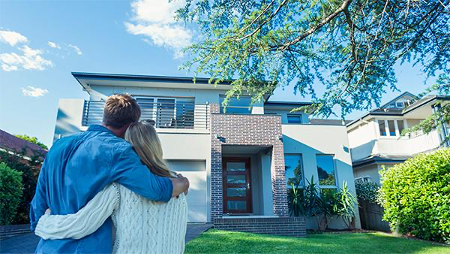Homebuyer FAQs
What You Need to Know
Whether you are a first-time homebuyer or have plenty of experience to draw on, it’s likely you have some questions about the process. We want you to be excited about your move. That’s why we put together a few frequently asked questions that will help you along your journey.
Why should I work with a Mainstreet REALTOR®?
A Mainstreet REALTOR® is a licensed real estate professional belonging to the National Association of REALTORS® (NAR). NAR is a real estate trade association that requires all of its members to follow a 17-article Code of Ethics. This means that your REALTOR® is required to have your best interests in mind.
Through NAR, state associations and regional associations like Mainstreet Organization of REALTORS®, REALTORS® have access to continuing education opportunities and the Multiple Listing Service (MLS). Using the MLS, your REALTOR® can provide the most accurate and up-to-date housing data available during your house hunt.

What are some of the benefits of homeownership?
Homeownership helps you build equity, allows you to qualify for mortgage interest deductions and can reduce your taxable income, among other benefits. Long-term, owning a home can also be significantly cheaper than renting.
What should I expect when making an offer?
Every home closing is different. In general, you'll work closely with your REALTOR® to put an offer on the table that has a chance of getting accepted. If the market is competitive, you may need to be prepared to make an offer the day you tour the home. It is also possible that you will need to make a few counter offers or negotiate with the seller before closing on a home.
Once your offer is accepted, you will need to get the home appraised and go through a home inspection. The appraisal will tell you the value of your new home and you may enter another round of negotiation if you initially agreed to more than the appraised price. Similarly, if your inspection shows any issues with your home, you may be able to negotiate so that the original owners pay for some of the repairs. After your offer is accepted and you finish settling your terms with the seller, your REALTOR® will make the closing process as simple as possible.
What should I know about credit and down payment assistance?
Your credit score will inform what loans you can qualify for, and this may impact your chances of closing on a house. Credit scores range from 300 to 850. Typically, taking out a loan for a mortgage will require a score above 500. However, it is possible to take steps to improve your credit score, as well as to qualify for loans with a lower credit score.
There are many different avenues to get down payment assistance and qualify for a loan. Options include loans through the
Federal Housing Administration (FHA), the
U.S. Department of Agriculture (USDA), and the
U.S. Department of Veterans Affairs (VA).
What are my loan options as a veteran or an active member of the military?
A VA loan is provided to veterans, active members of the military and their families by the U.S. Department of Veterans Affairs. VA loans are typically associated with a lower interest rate and do not require a minimum credit score. The VA can also help veterans negotiate and provide assistance if you default on a loan. Learn more about the resources available to service members and veterans.
What is homeowners insurance?
Investing in homeowners insurance is key to protecting your home against the unexpected. While it is not required that you purchase insurance on your home, it is possible that your loan will be contingent on purchasing insurance. There are many different companies that offer homeowners insurance, and you should ask your REALTOR® about your options.
When is the best time of year to buy?
This varies depending on the housing market. Typically, buyers who are willing to search for a home in the colder months of the year will have less competition when purchasing a home.
Do you recommend any resources for ideas on home improvements?
Yes! HouseLogic is designed by REALTORS® and has great ideas for improving your home. If you already have a sense of the changes you want to make in your home, use Mainstreet REALTOR’s
Affiliated Partner Search to find the people who can help you make them.
Should I use a buyer’s agreement?
If you are working with a REALTOR, yes you will need to sign a written agreement with your REALTOR before viewing residential property listed for sale. In January 2025, you will need to sign a written agreement with any Illinois real estate licensee for residential sales and leasing as well as commercial sales and leasing. While seller's agreements have been commonplace for residential transactions, buyer's agreements are equally as important. Written representation agreements empower consumers with additional choice and transparency when buying and selling property. Typically, brokers are not paid until a home is sold.
What do I need to know about changes to home buying as a result of the recent NAR settlement?
There is a great deal of misinformation about the NAR settlement and its impact on local real estate consumers, so please proceed with caution when turning to the media or real estate influencers for updates. Instead, we recommend visiting this
FAQ page for more information.








